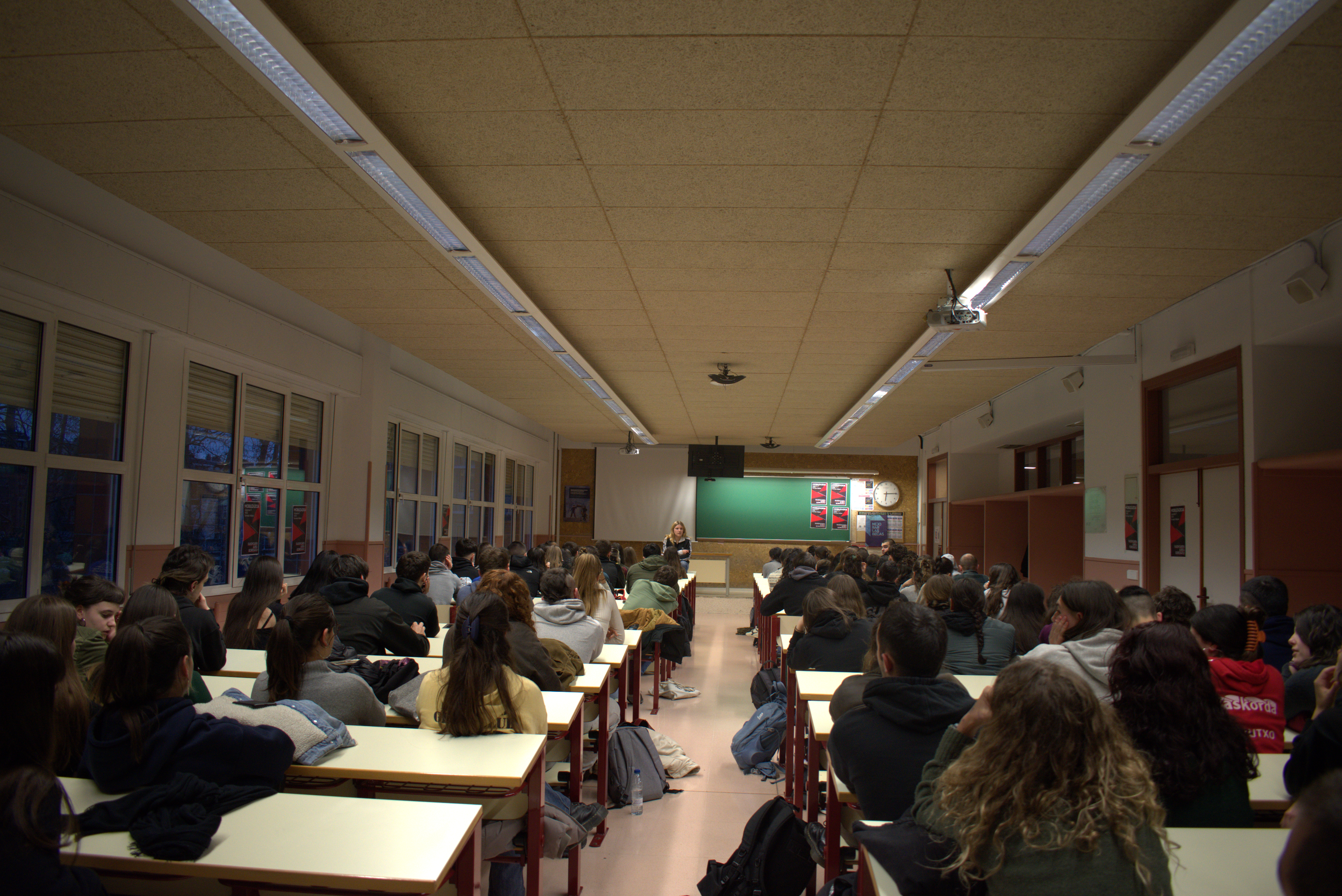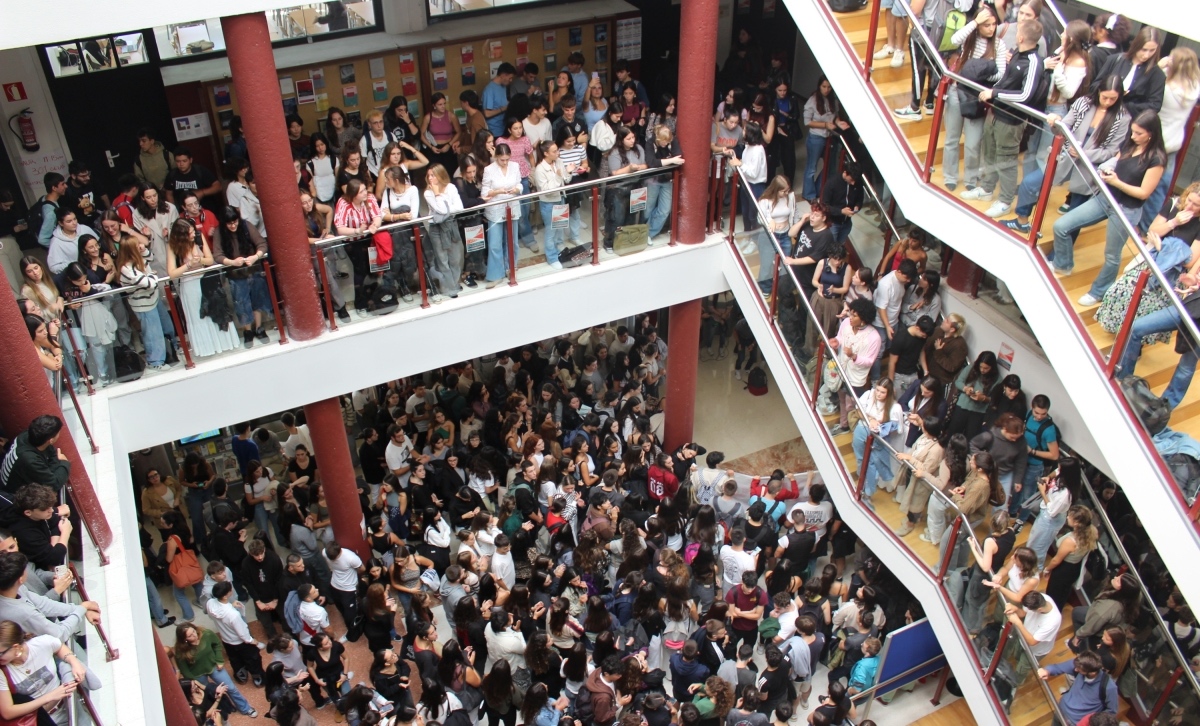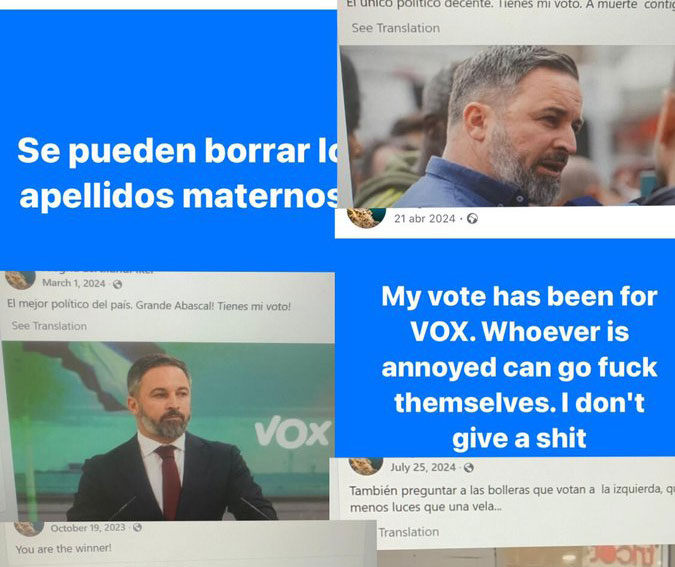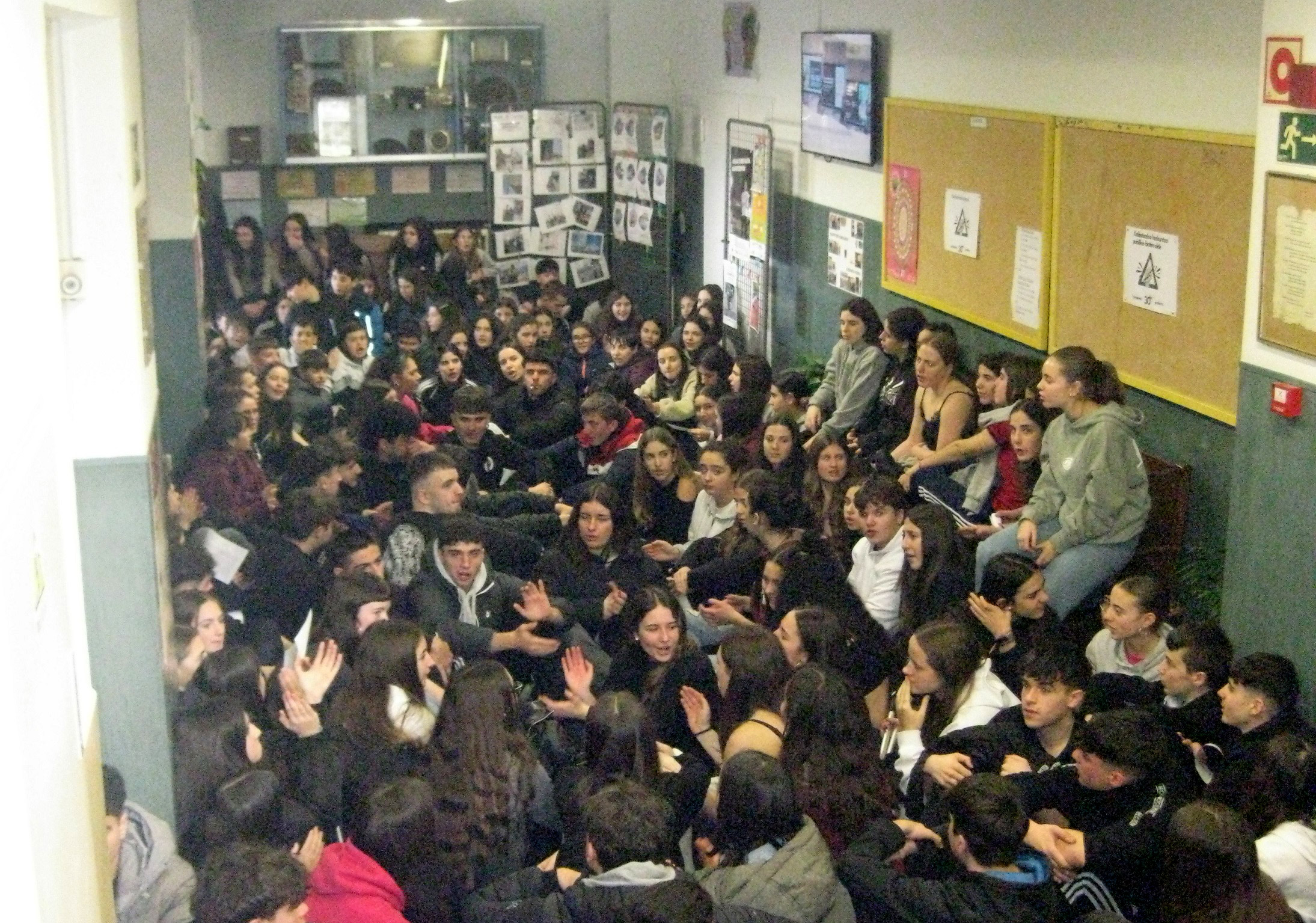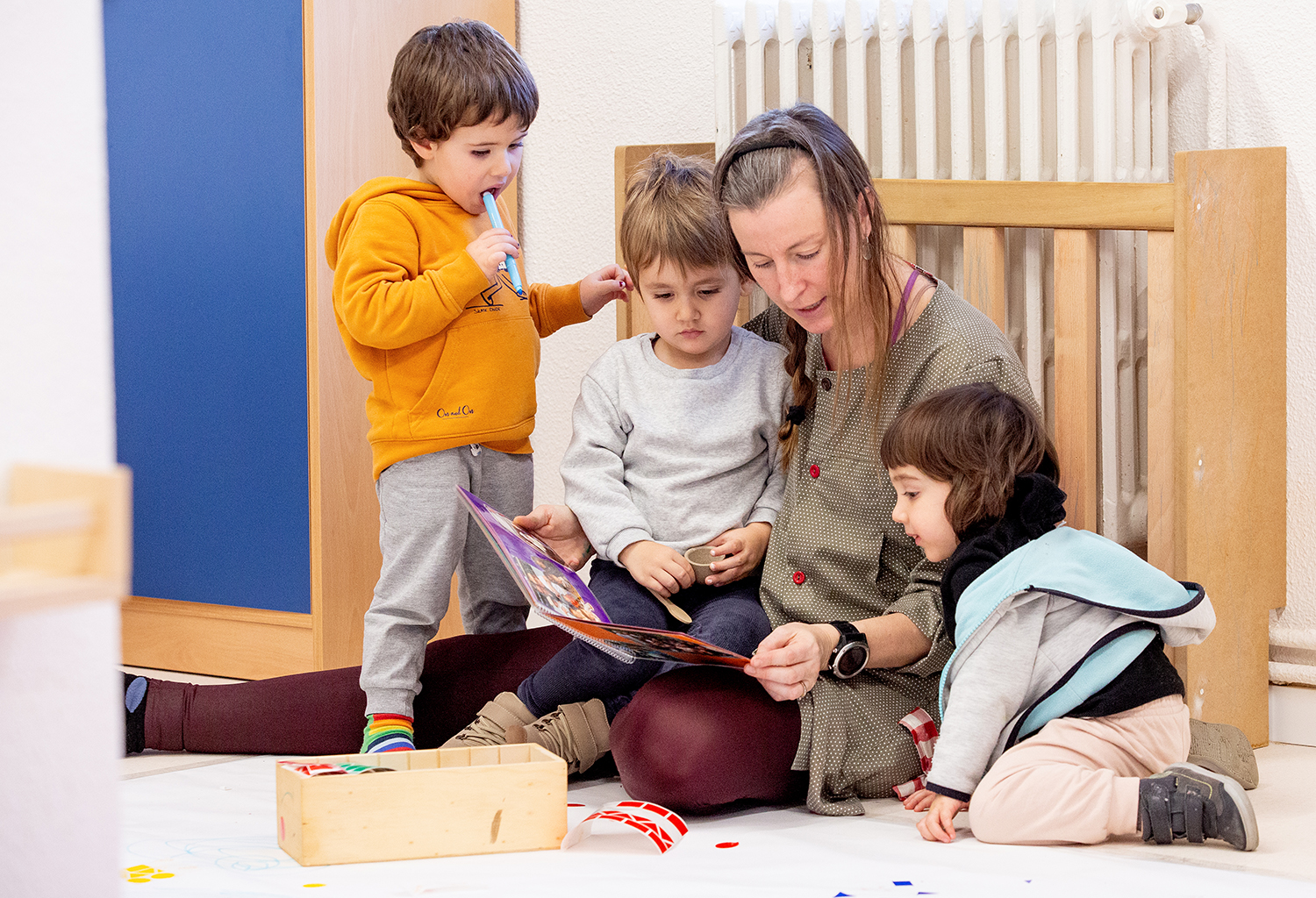A lesson in the dark in schools
- In our schools, sex education is very limited. The number of hours is limited, institutional participation is also limited and legislation does not help to exceed limits. Sexologists do what they can, but they're clear about what they want to do: educate children in the sexes.
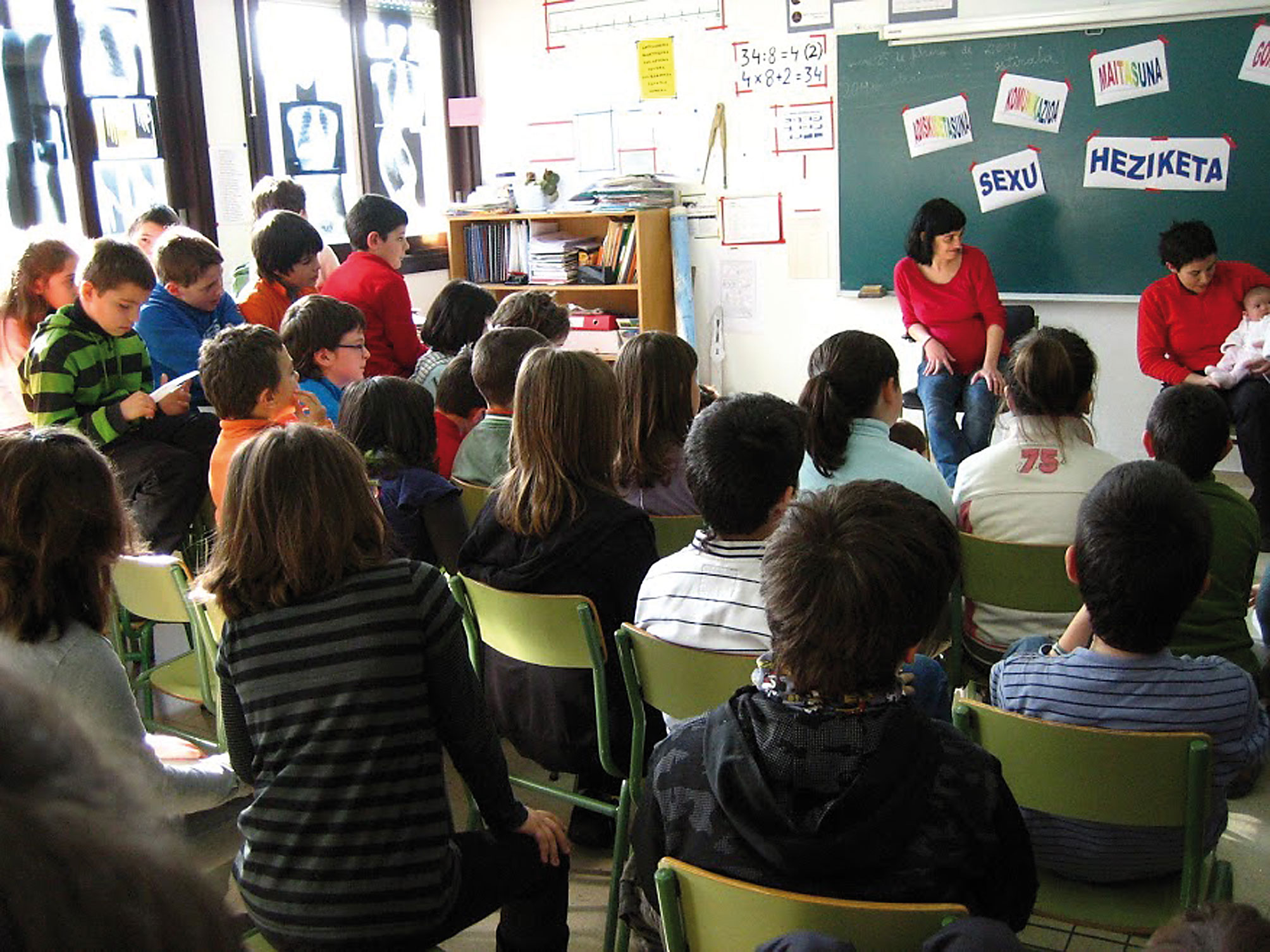
On both sides of the border, sex education is surrounded by borders. In the French State and, therefore, in the French Basque Country, sex education has been part of the school curriculum since 1973. In total, however, students receive 30-40 hours of training in all compulsory education. In September 2013, the central government launched the programme les ABCD de l’égalité (Berdintasuna ABCD) with the aim of weakening gender stereotypes at school. However, public opinion does not seem to be inclined to reinforce sexual training. Seven years ago, the ZiziSexuel exhibition was inaugurated in Paris, an interesting educational initiative on sex aimed at boys and girls. The exhibition has travelled almost all of Europe and recently returned to Paris with more controversy than seven years ago; at first, several Catholic and conservative associations received 8,000 signatures against the sample and on their return they reached 40,000.
And yet, the situation of sexual education is better than that of Hego Euskal Herria, at least officially. In the Spanish state, sex education was taught for the first time in 1990 (LOGSE), within the subject of Health Education in the line. In 2006, the LOE proposed that students receive competencies for social life, but did not include specific content on sexual education beyond those proposed in Education for Citizenship. The 2010 Organic Law on Sexual and Reproductive Health establishes that the public authorities will guarantee information and affective-sexual education in all the formal contents of the educational system. But this aspect of the law has not developed, and now the LOMCE removes all the scarce remnants of sexual education from the educational curriculum.
By decision of the centres
Consequently, according to the sexologist Olatz Berastegi of the Ekiten group, “sex education is in the hands of educational centers and most of the time they themselves decide how to do that training”. Those who choose sex education hire external sexologists to offer 6-8 horas.En courses the three Compulsory Secondary Education courses are offered a total of 30 hours and, in some cases, another 6 hours in Primary. Therefore, in all compulsory education it is offered from 0 to 36 hours. In the survey conducted in the Spanish state for young people between 15 and 24 years of age, only 46% answered that they had received information about sex in the center. In the absence of specific data from Hego Euskal Herria, Olatz Berastegi points out that the situation in the CAV is better than in the rest of the State; in Navarra it is not so optimistic.
The institutions have also started to bring their grain of sand: “Especially in Gipuzkoa, the issue of equality has gained strength and many municipalities offer courses to local schools. But above all to act on equality and prevention of violence”.
And in general, more and more centers are choosing to recruit sex education programs. “But they hire us to be able to say they do it often,” says the sexologist, “and there are people who want to do a lot in a few hours and even pay less money.” That has been a concurrence, and not always loyal. “Some bring down prices and offer free hours and other special offers. That, in the end, harms our profession and sexual education in general.”
Wanting and not being able to
The centers usually ask sexologists for programs that allow them to know their content in hiring their services. But because the number of hours is limited, “we often have to confine ourselves to urgent issues and leave out many content. We sexologists are clear about what we want to work, but it’s not easy.”
As for the didactic material, there are more and more sources: sexology associations, television programs, universities… they are constantly creating didactic content. In 2014, for example, the LGBTI group of the Stee-Eilas trade union has prepared a didactic unit to work on sexual diversity with the aim of eradicating homophobia in schools. “Then, of course, we develop or adapt the content that we have to give based on age,” says Berastegi.
The problem is not in gender-specific learning materials, but in those used in other subjects. Sex education is a very broad concept (although in practice work is limited) that affects most subjects. For example, “in math textbooks, when it comes to problem-solving, they often use very stereotyped and inadequate examples of gender.” Therefore, although there is an increasing number of specific material for the preparation of sexual courses and workshops, the materials of other subjects are often inadequate for sexual education and “teachers in general are not prepared for it”.
As far as the training of sexologists is concerned, it should be noted that the full upper course of sexology is taught at a single European university in Leuven, Belgium. That is, whoever wants to do a career in sexology has to go there (or Quebec). Otherwise, sexologists receive training by adding psychology, pedagogy, anthropology or any type of career and postgraduate studies. It has to be said that the possibilities of these postgraduate studies are becoming broader and better, and that therefore they are also improving the training of people who offer sex education in schools, the materials they generate…
The model is about to arrive
In Hego Euskal Herria we have seen that the situation of sexual education is precarious. Nor is it much better in Ipar Euskal Herria. So is there a country that offers exemplary sex education? There's a lot of difference from country to country. In Portugal, for example, it depends to some extent on the biological curriculum. In Finland, sexual issues are also related to biology in Primary Education, and although content is later disseminated, they are limited to health issues. In Germany, compulsory sex education has a broader content and some religious associations rejected the complaints filed against it, first by the German Constitutional Court and then by the European Court of Human Rights in 2011.
To find the most appropriate sex education program, we should go to Sweden. In school education in the Nordic country, sex education has been compulsory since 1956. Boys and girls start to receive sex classes between the ages of 7 and 10 and until compulsory cycles are completed, the offer is expanded. Sex education is integrated into several subjects, not only in biology or health, but also in the history of sex.
There's a lot of difference from country to country. But the difference is even greater between what sex education is and what should be. Sexologists aim to educate the sexes. Currently, the content focuses on the prevention of diseases, ill-treatment or sexual practices, in demand of a limited demand. Consequently, the sexologist says: “A negative message about sex is sent to children and young people: it’s dangerous, they have to be careful…” Obviously, with legal support, increased hours, improved teaching materials (all) and good teacher training, significant steps would be taken.
But the key is at the base, to change that strict concept of sex. This more comprehensive concept of sex education seems utopian, but Olatz Berastegi adds some light to the dark photograph of sex education: “Frontier, in recent years we have been able to progressively expand the education of the sexes, we have started talking about girls and boys, about identity, about our relationships.”
Efigenio Amezua (Palentzia, Espainia, 1941), Sexologian doktore da 1971tik. Titulua, jakina, Lovainan (Belgika) eskuratu zuen, oraindik ere Europa osoan sexologiako karrera eskaintzen duen unibertsitate bakarrean.
Espainiako Estatuko sexologiako profesionalen jardunaldi batzuetan Amezuak emandako hitzaldiaren zati batzuk jaso ditugu: “Sexu heziketaz ulertzen denaren egungo egoera orokorraren azterketak oinarrizko akats bat du euskarri: giltzarri gisa sexua erabiltzea eta, hala, sexualtzat jotzen den guztia genitalari buruzkoa da.
(...) Garrantzitsua da zuhaitzek ez dezatela basoa ikustea eragotzi eta, halaber, genitalaren zuhaitza basoarekin berarekin ez nahastea.
(...) Sexu heziketa sexuen heziketatzat dut. Sexuena, pluralean eta ez sexuarena, singularrean, genitalaren sinonimo gisa. Sexu heziketa, niretzat, beste ezer baino lehen, subjektuen identitatearen heziketa da: bakoitza gustura sentitu eta bizi ahal dadila emakume eta gizon gisa. Horixe litzateke muina. Gainerakoa hortik abiatuta soilik uler daiteke. Inbaditzen gaituen sexu heziketa delakoaren zati handi bat brikolaje hutsa da. Baliozko muin nagusitik etengabe arreta galaraztea. Huskeriatan behin eta berriz galtzea, nagusiena hondakinen artean utzita.
Esan dut sexu heziketaren funtsezko erreferentzia subjektuen identitatea dela eta horri buruzko baieztapen batzuk nabarmendu nahi ditut. Lehenik, identitate hori subjektua maskulinotzat edo femeninotzat biografikoki –eta ez soilik biologikoki– egituratzen duten sentsazioen, emozioen, sentimenduen, afektuen bidez –hau da, bizipenen bidez– taxutzen da. Horrek esan nahi du identitatea, halabeharrez, sexuduna dela. Edo, bestela esanda, sexualitatea identitatearen beraren parte dela.
Bigarrenik, identitate horrek ezin du generikoa edo generokoa izan, indibiduala eta konkretua baizik, hau da, norbanakoarena. Norbanakoa espezie generiko edo gizarte baten parte izanik, rol, funtzio eta estereotipo generiko eta publikoak egokituko dizkiote; baina haren identitatea ez da eztabaida publikokoa, intimitatekoa baizik.
Eta, azkenik, identitate horren muin intimoenean kokatzen da bere sexualitatea. Garbi dago intimitatearen kutsu moral eta konduktualaz abusatu dela. Egiten dena izaerari eta bizipenei gailendu zaie. Praktikak (gehienetan genitalak edo perigenitalak, sexuarekin obsesionatutakoen irizpideei dagokien moduan) gehiegi nabarmendu dira eta sexu identitatea intimitatez hustu da.
Zenbait sektoretan erro sexual hori saihesteko eta generoaren erroaz ordezkatzeko joera dago egun; alderdikoia izateaz gain, identitateentzat arriskutsua ere izan daiteke hori.
Azaldutakoak adierazten duenez, sexu heziketak, hau da, sexuenak, ia ez du zerikusirik gaur egun inbaditzen gaituenarekin. Gaixotasunen prebentzioa, haurdunaldiak saihestea eta antzekoak osasun edo gizarte ekintzak besterik ez dira, merituzkoak eta beharrezkoak, baina zerikusi gutxi dute subjektuen errealitate sexualarekin.
Beharbada horregatik sexu heziketa moden eta larrialdien arabera balantzaka dabilen efemeride gorabeheratsua besterik ez da. Heztea, funtsean, balioak aurkitzeko subjektuek dituzten gaitasunak bultzatzea, piztea eta akuilatzea baldin bada, horra hor balio bat: sexuen egintza. Eta balio horrekin bat egitea garrantzitsua bada, sexual abizena duena heziketak berez dagokion balio espezifiko horrekin bat egin beharko luke. Bestela, besterik gabe, osasun edo gizarte heziketaz hitz egin genezake.
(...) Heziketa ororen xedea maila igotzea da, zuhaitzek basoa ikustea eragotzi ez dezaten. Informatzea testuinguruan kokatzea da. Eta genitalak subjektuen osotasunean kokatzea, eta subjektuak beren sexuetan kokatzea, sexu heziketa egitea da, hau da, sexuen heziketa.
(...) Genitalak basoko zuhaitzak dira, ez basoa bera”.
Hitzaldia 1995ean eman zuen Amezuak, hau da, duela ia 20 urte, baina haren hitzek ez dute gaurkotasunik galdu. 20 urtetan gizarteak eta hezkuntza sistemak, oro har, ez dute diskurtso hori barneratu, eta sexu heziketaren hutsune nabarmenak bere horretan daude. Hala ere, sexologoak, denbora eta baliabide urriek uzten dieten neurrian, sexu heziketaren egungo zirrikitu estua baliatzen hasiak dira sexuen heziketa, Amezuak aldarrikatzen duen hura, pixkanaka ikasgeletan txertatzeko.
The Department of Education doesn't understand why public employees have gone on strike. He's got to ask the LAB Syndicate. This union signed an agreement with the department in April 2023. Two years later they have also called for a strike because, unlike the previous ones, the... [+]
Erretiratu berri den lankide-ohi baten omenez, Historiako irakaslea. Bejondeizula!
Hezkuntza-legeek azpimarratzen dute zein garrantzitsua den ikasleengan pentsamendu kritikoa sustatzea. Baina irakasle-klaustroak, garai batean ideien eztabaidarako eta proposamenak... [+]









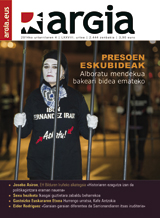

_2.jpg)
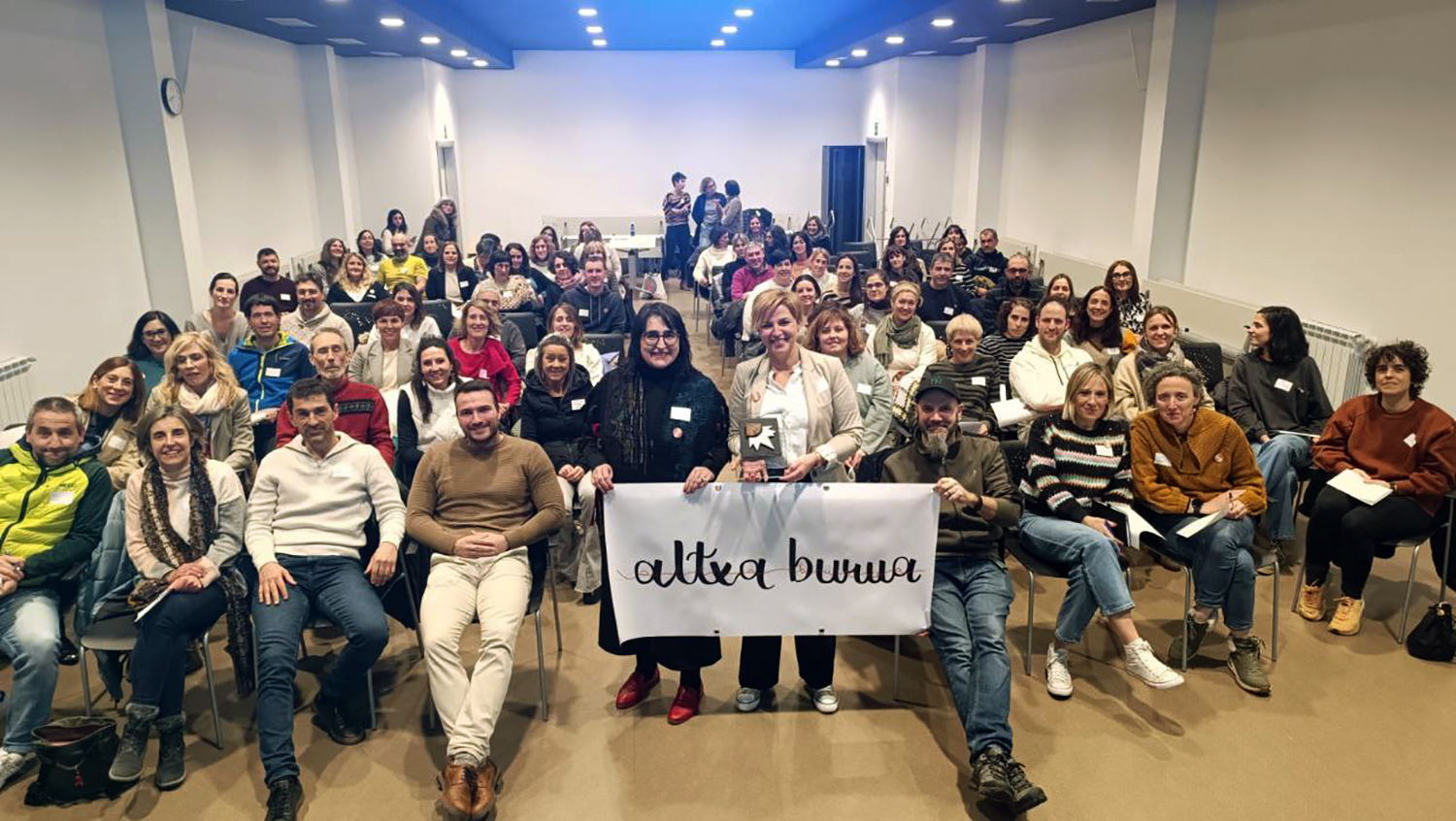
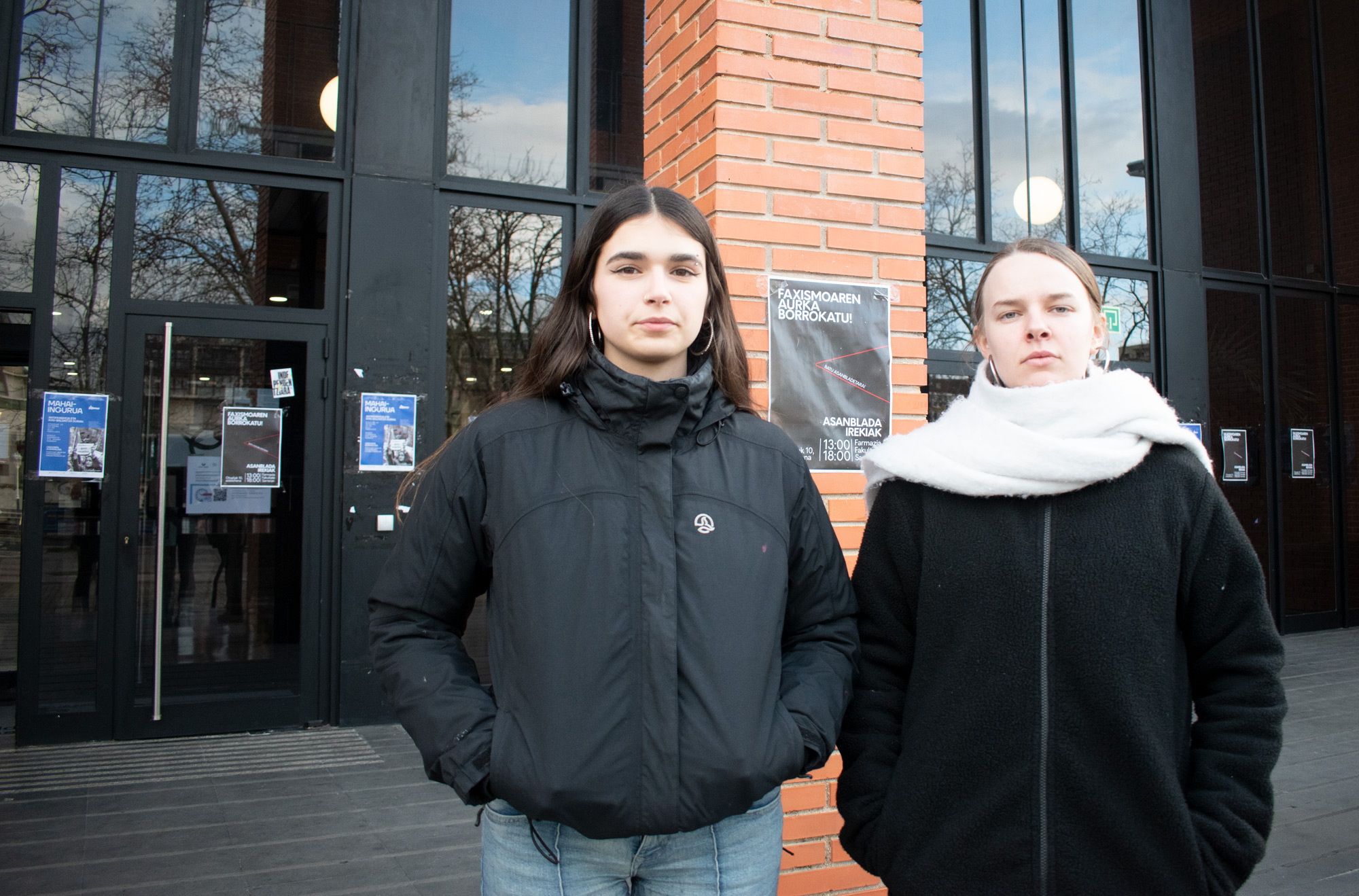
_2.jpg)

_2.jpg)
